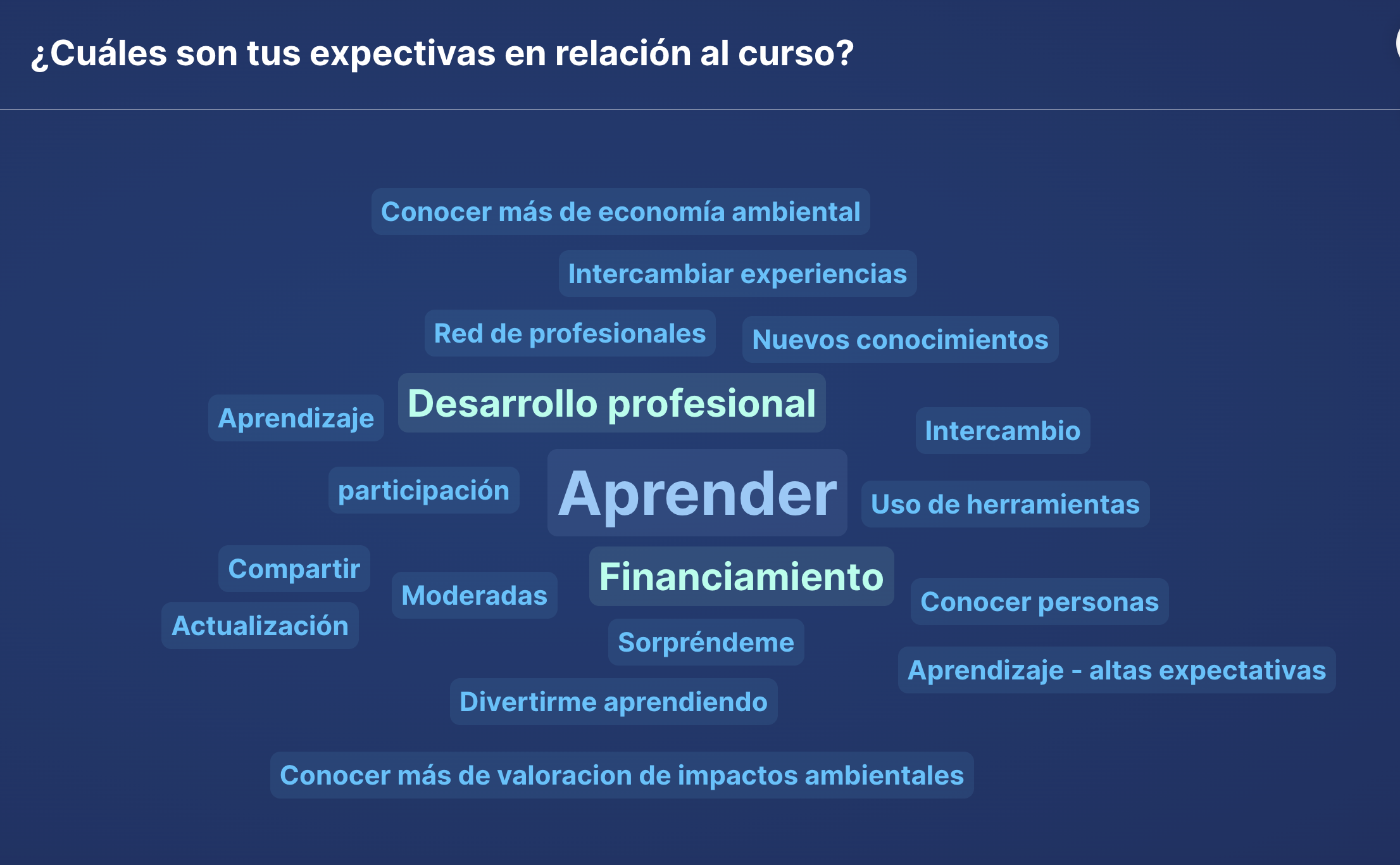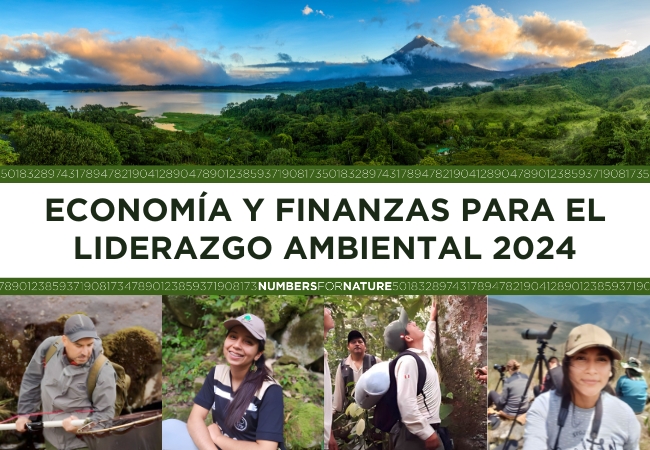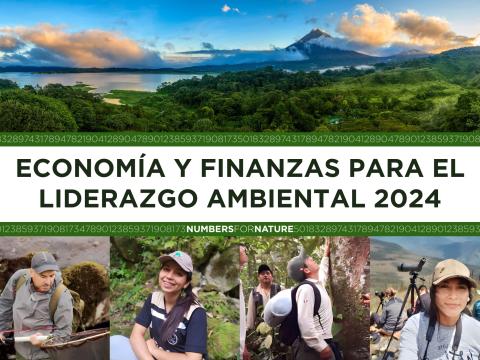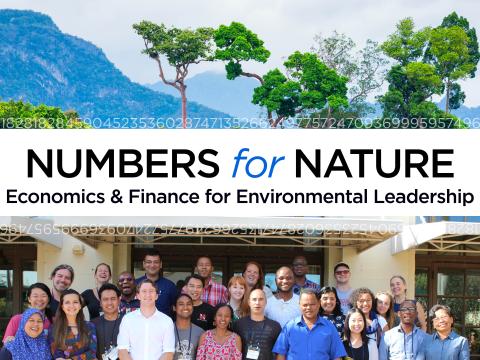We started the second version of the "ECONOMICS AND FINANCE FOR ENVIRONMENTAL LEADERSHIP" course focused on Latin America
On April 1st, we commenced the second edition, exclusively in Spanish and 100% online, of our esteemed course 'Economics and Finance for Environmental Leadership' on our Spanish online training platform, Numbers for Nature Institute. This course is a unique opportunity for Latin American professionals, offering them economic tools with direct applicability in the field of nature conservation. These tools, including natural resource economics, cost-benefit analysis, economic valuation, economic incentives, and sustainable financing opportunities, are designed to empower professionals to contribute to designing effective conservation programs and the socio-environmental evaluation of poorly planned development projects.
The 13-week course, divided into eight modules, is aimed at professionals working in nature conservation and sustainable management of natural resources in the private sector, governmental and non-governmental agencies, academia, and grassroots organizations. The course structure allows participants to continue with their daily work and participate in the course through a combination of pre-recorded classes, online sessions with experts, updated readings, debates, and practical and interactive exercises.

This year, we have a curious and participative group of professionals from different areas, with 31 students from seven countries: Bolivia, Brazil, Chile, Colombia, Ecuador, Mexico, and Peru. These students show high expectations of learning, seek to be part of a network of conservation professionals, and wish to certify their knowledge in environmental economics. Participants are especially interested in the module on financial sustainability for biodiversity conservation and financial solutions.

Course content:
- Economic Basis
- Cost Benefit Analysis
- Financial Sustainability for Biodiversity Conservation
- Natural Resource Economics
- Ecosystem Services and Economic Valuation
- Behavioral Economics
- Financial Solutions
- Environmental Policy

- Log in to post comments



